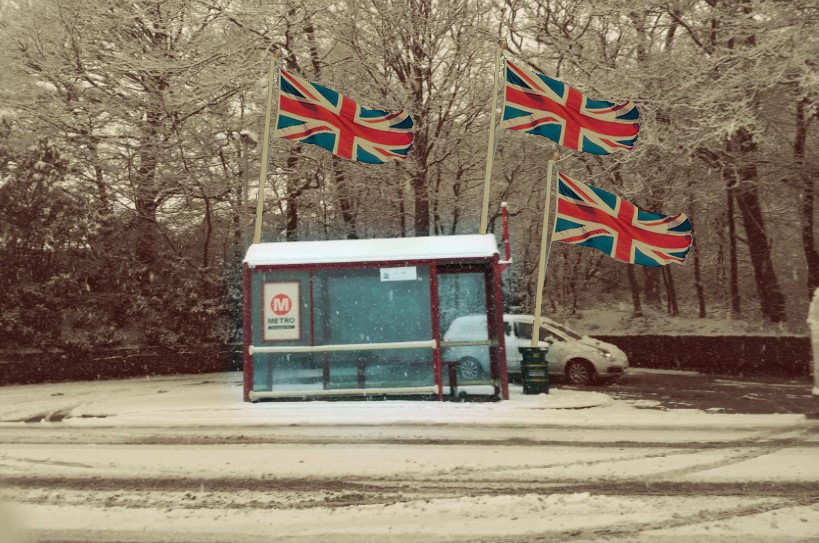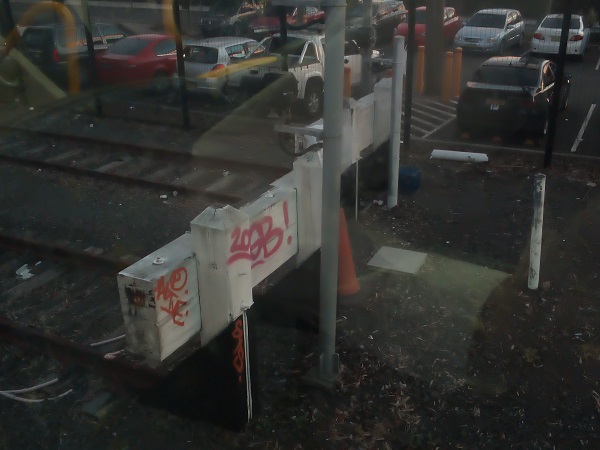One of the consequences for commuters which has been wrought by the NSW State Government's decision to deliberately not connect the North West Metro to the Richmond Line is that the number of available connections has been deliberately diminished and if they collapse (as we saw this week due to flooding) then the network very quickly turns into a notwork. I am sure that this is deliberate because the then Transport Minister Gladys Berejiklian was the one who signed off on refusing to make that last 2222m connection and the other end of the Metro at the time just happened to be at Chatswood; which by total coincidence just happens to be in her electorate of Willoughby. Another coincidence is that the whole of the North West Metro just happens to run through Liberal Party electorates and doesn't connect with any Labor voting ones. What a coincidence!
It also just happens to be a coincidence that the Rail, Tram and Bus Union are having a ding-dong barney with the state government at the moment, over pay and conditions; which when combined with physical notwork issues, magically turns the whole shebang into a terrible horrible very bad no good thing.
Trains up the Richmond Line at peak run at 7½ minute intervals under normal circumstances. With the line being under water in places last week and the very real threat of electrocution caused by many kilovolts of electricity which could potentially flow through the bodies of people, Sydney Trains has quite rightly closed the line beyond Schofields for safety reasons. The wish not to be dead is a pretty good one. The problem is that this has meant that turning a train around (which in this case means walking to the other end because all sets are double ended) has to be done within an even tighter schedule. In the mornings that's fine as trains get progressively more full as they go towards the city but in the evenings when trains vomit their contents out, suddenly a 7½ minute interval gets two and three minutes shaved off and we approach saturation.
Train drivers in order to get to Blacktown, in order to make the relay of crews, travel by train (which should surprise nobody). As they're already on the train and the state government is trying to force the railways to make do with less staff, that means running ever closer to the line. When you throw in a couple of notwork issues, running that close to the line only results in falling over it.
For two days straight now, as restrictions on mask wearing and capacity limits lifted across both public transport and at workplaces, the perfect storm of circumstances has created a perfect storm of inconvenience. I am of course annoyed with being made late and the uncertainty of train services but I am not annoyed at train staff.
There's a weird thing about train drivers, train guards, and station staff and stationmasters generally. That is that they almost never fall into the job but rather deliberately choose to join the railways because they love it. Rail infrastructure crews might arrive via other routes but actual front line staff and drivers want those jobs because of far more romantic notions than becoming an office worker. Working on the railways is one of those rare occasions where people get to do one of those classic dream jobs.
It is for that reason that you can not blame railway staff when things go wrong. This week has been a case where things have gone wrong because of environmental circumstances and management decisions happening way way up there in the rarified air of politics (and deliberate tory politics at that).
Yesterday we were stuck at a double red signal because the line had reached saturation and we were waiting for a relay crew. I had a chat with the guard in the rear car, who should have been relieved at 1845 but we were already late (see above) and he was hanging around because he didn't think that it was fair to leave passengers with no idea what was going on. His frustrations were obvious and I remarked that this wasn't his fault but the fault of a flood and very likely Gladys'. His whole countenance changed and he told me about ongoing disputes between the RTBU and management which could ultimately be traced to the Transport Minister Andrew Constance and the Premier.
When things work perfectly, nobody tends to notice. A system as multicomplex as the railway needs a whole army of people all working together in concert. It is only when things go wrong that we tend to notice, and in some cases the people who were already working are pushed to work even harder. I think that it is worthwhile to try to understand why things go awry, to try to be kind to the people who are working on the problem, and maybe to lower our expectations so that we're not disappointed.


